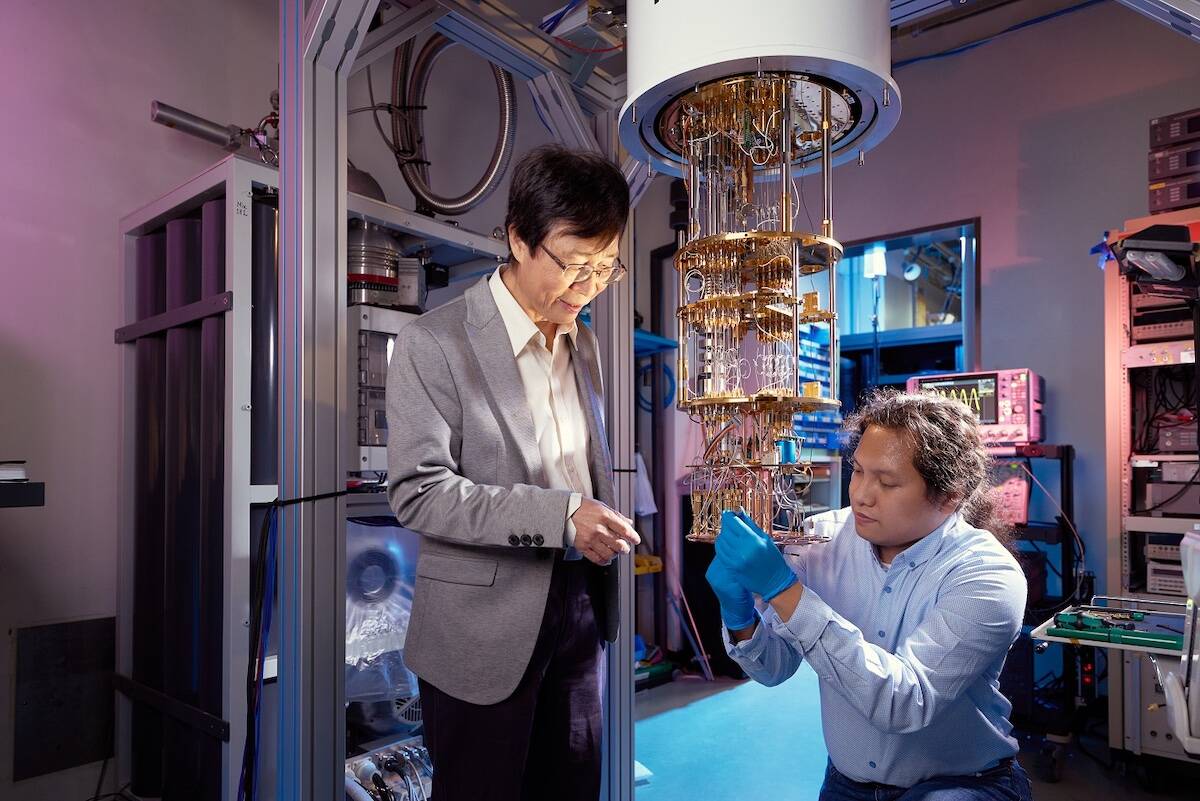Taiwan Connects Its First Home-grown Quantum Computer To The Internet

Taiwanese research institute Academia Sinica has connected a home-brew quantum computer to the internet.
A January 19 announcement of the connection reveals that the machine has five qubits and is available as a test bed for the university's project collaborators, with other researchers able to use it as a development platform for their own efforts using the machine's ultra-low temperature CMOS and parametric amplifiers. Collaborators include the University of California, Santa Barbara, and the University of Wisconsin-Madison, so this machine's success may assist US quantum development efforts.
The machine has already had an upgrade from three to five qubits, the announcement states, adding that cubit logic gate fidelity was measured at 99.9 percent – which suggests the computer is nicely stable.
Details of the machine's operating environment are absent in the University's statement, which focused on its strategic significance as a sign of progress in the drive to develop the island's quantum capabilities.
- JPMorgan latest to pile into quantum upstart with $5B valuation
- Quantum computing eggheads throw some other qubits at the wall to see what sticks
- Quantum computing next (very) cold war? US House reps want to blow billions to outrun China
- It's not just spin – boffins give quantum computing a room-temp makeover
Taiwan has, of course, famously come to lead the world in semiconductor manufacturing. Framers of the island's aggressive industry policy will not have missed the likelihood that the rise of quantum systems may make its silicon prowess less relevant.
Indeed, local media yesterday reported that Taiwan's Semiconductor Research Institute has gone shopping for a five-qubit machine from Finland's IQM – manufacturer of a machine called the Spark which matches that spec.
The Spark is billed as "An affordably priced 5-qubit superconducting quantum computer, professionally designed and calibrated as a turnkey solution." That makes it sound a little more mature and easy to deploy than Academia Sinica's effort which, as illustrated below, has a few rough edges. ®
From Chip War To Cloud War: The Next Frontier In Global Tech Competition
The global chip war, characterized by intense competition among nations and corporations for supremacy in semiconductor ... Read more
The High Stakes Of Tech Regulation: Security Risks And Market Dynamics
The influence of tech giants in the global economy continues to grow, raising crucial questions about how to balance sec... Read more
The Tyranny Of Instagram Interiors: Why It's Time To Break Free From Algorithm-Driven Aesthetics
Instagram has become a dominant force in shaping interior design trends, offering a seemingly endless stream of inspirat... Read more
The Data Crunch In AI: Strategies For Sustainability
Exploring solutions to the imminent exhaustion of internet data for AI training.As the artificial intelligence (AI) indu... Read more
Google Abandons Four-Year Effort To Remove Cookies From Chrome Browser
After four years of dedicated effort, Google has decided to abandon its plan to remove third-party cookies from its Chro... Read more
LinkedIn Embraces AI And Gamification To Drive User Engagement And Revenue
In an effort to tackle slowing revenue growth and enhance user engagement, LinkedIn is turning to artificial intelligenc... Read more


